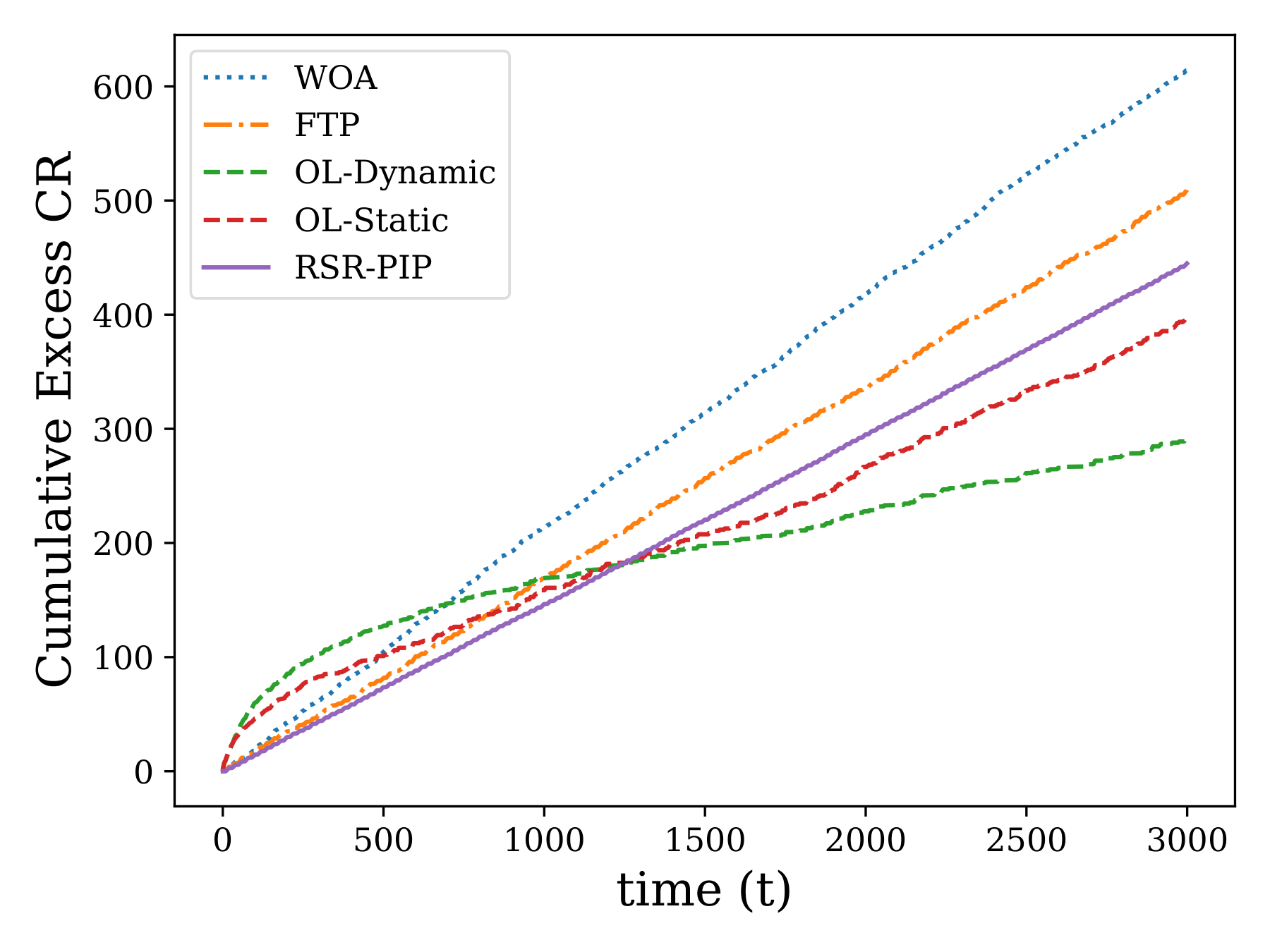Online Algorithms with Uncertainty-Quantified Predictions

0

Sign in to get full access
Overview
- This paper presents a new approach for designing online algorithms that can make uncertainty-quantified predictions to improve their performance.
- The authors propose a distributionally robust analysis framework that allows online algorithms to account for potential uncertainty in their input predictions.
- They demonstrate how this approach can lead to optimal online algorithms for several classic problems, including the ski rental problem and the k-server problem.
Plain English Explanation
The paper discusses a new way to design online algorithms - computer programs that make decisions without full information about the future. These algorithms often rely on predictions about future events, but those predictions can be uncertain or inaccurate.
The researchers developed a framework that allows online algorithms to quantify and account for the uncertainty in their predictions. This <a href="https://aimodels.fyi/papers/arxiv/comprehensive-survey-uncertainty-quantification-deep-learning">uncertainty quantification</a> approach enables the algorithms to make more robust decisions, even when the predictions are not perfect.
For example, imagine an online algorithm that is deciding whether to rent or buy skis for the winter. Traditionally, the algorithm would need to make a binary decision based on a predicted number of ski days. But with the new framework, the algorithm can consider a range of possible ski days and make a choice that performs well across that entire distribution, rather than optimizing for a single prediction.
The paper shows how this distributionally robust approach can lead to optimal online algorithms for classic problems like the <a href="https://aimodels.fyi/papers/arxiv/online-classification-predictions">ski rental problem</a> and the k-server problem. By incorporating uncertainty into the decision-making process, the algorithms can adapt more effectively to changing or unpredictable conditions.
Technical Explanation
The key innovation in this paper is the development of a distributionally robust analysis framework for online algorithms. Traditionally, online algorithms have relied on point predictions of future inputs to make decisions. However, these predictions can be uncertain or biased, leading to suboptimal performance.
The authors propose modeling the potential uncertainty in the predictions using a distribution, rather than a single value. This allows the online algorithm to consider a range of possible futures and make decisions that are robust to the prediction errors. Specifically, the algorithm optimizes its performance under the worst-case distribution within a given uncertainty set, rather than the average case.
The authors demonstrate the effectiveness of this approach on two classic online problems - the ski rental problem and the k-server problem. For the ski rental problem, they show how the distributionally robust algorithm can achieve the optimal competitive ratio, outperforming traditional online algorithms that rely on point predictions.
Similarly, for the k-server problem, the authors derive an optimal online algorithm that incorporates uncertainty quantification. This allows the algorithm to adapt its behavior based on the level of uncertainty in its predictions, leading to better overall performance.
The key technical contribution is the development of a general framework for designing and analyzing online algorithms under distributionally robust assumptions. This provides a principled way to reason about the impact of prediction uncertainty on online decision-making, and leads to provably optimal algorithms for a variety of settings.
Critical Analysis
The paper presents a compelling approach for designing online algorithms that can handle uncertainty in their input predictions. The authors' use of distributionally robust optimization is a novel and promising direction for this field.
One potential limitation is the reliance on specific uncertainty sets, such as Wasserstein balls, to model the prediction errors. While this provides a tractable optimization problem, it may not capture the full range of possible prediction uncertainties that can arise in practice. Exploring more flexible uncertainty representations could be an area for future research.
Additionally, the paper focuses on classic online problems like ski rental and k-server. It would be interesting to see how the distributionally robust approach extends to more complex, real-world online optimization problems, such as those encountered in <a href="https://aimodels.fyi/papers/arxiv/enhancing-trustworthiness-ml-based-network-intrusion-detection">network management</a> or <a href="https://aimodels.fyi/papers/arxiv/online-calibrated-conformal-prediction-improves-bayesian-optimization">Bayesian optimization</a>. Validating the practical utility of this framework on a wider range of applications could further strengthen the impact of this work.
Overall, the paper presents a promising direction for online algorithm design and analysis. The authors' emphasis on quantifying and accounting for prediction uncertainty is an important step towards more robust and reliable online decision-making systems.
Conclusion
This paper introduces a novel distributionally robust framework for designing online algorithms that can make uncertainty-quantified predictions. By modeling the potential uncertainty in their input predictions, the algorithms can make more robust decisions and achieve optimal performance, even in the face of imperfect information.
The authors demonstrate the effectiveness of this approach on classic online problems like ski rental and k-server, deriving optimal algorithms that outperform traditional online algorithms. This work represents an important contribution to the field of online algorithms, providing a principled way to incorporate prediction uncertainty into the decision-making process.
The distributionally robust framework developed in this paper has the potential to significantly improve the performance and reliability of online algorithms across a wide range of applications, from network management to Bayesian optimization. As the complexity and uncertainty of real-world decision-making problems continues to grow, approaches like this will become increasingly valuable for building robust and adaptive systems.
This summary was produced with help from an AI and may contain inaccuracies - check out the links to read the original source documents!